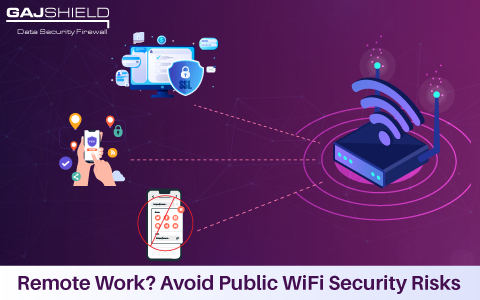Remote Work? Avoid Public WiFi Security Risks
The recent trend of providing access to free public WiFi is helpful for working professionals. With the onset of remote and hybrid working, many professionals use the free WiFi provided in public spaces. However, this comes at a cost. The features that make free WiFi hotspots appealing (no requirement of authentication) to use a network connection also appeal to cybercriminals. It allows hackers to get unrestricted access on the same network to unsecured devices, making it a threat to data security.

How to Avoid Public WiFi Security Risk
With public WiFi getting widespread, there are certain security issues that one can be privy to while accessing it. However, measures can be taken to mitigate such risks.
1. Using only SSL Connections
SSL stands for Secure Sockets Layer, a safety protocol that establishes an encrypted link between the user and the website. Using SSL connections helps to reduce the likelihood of a cyber attacker extracting sensitive information from the public WiFi or network that the user uses.
2. Making Use of VPN
A VPN or Virtual Private Network provides strong encryption that helps conceal a user’s information and device while accessing public and unsecured networks. Business professionals must ensure the data security of their company’s confidential information when working from a public space.
3. Disabling or Turning Off Sharing
When connected to a public network that is likely unsecured, a user should turn off sharing or receiving shared information over a public network. This is so that a hacker cannot imprint their bugs into the user’s device.
With remote and hybrid working being the new way of working, professionals using public WiFi should find ways to limit their exposure to cyber threats. Their devices must be equipped with optimum cybersecurity solutions to enhance their data security.
GajShield’s robust cybersecurity solutions, such as advanced Firewalls, Virtual Private Networks, Pro Active Security, and much more, help provide the user with a well-rounded cybersecurity solution and ensure high-level data security. Contact us for more information on our cybersecurity solutions.
Get In Touch With Us
Subscribe to our Newsletter
2025 © GajShield Infotech (I) Pvt. Ltd. All rights reserved.
